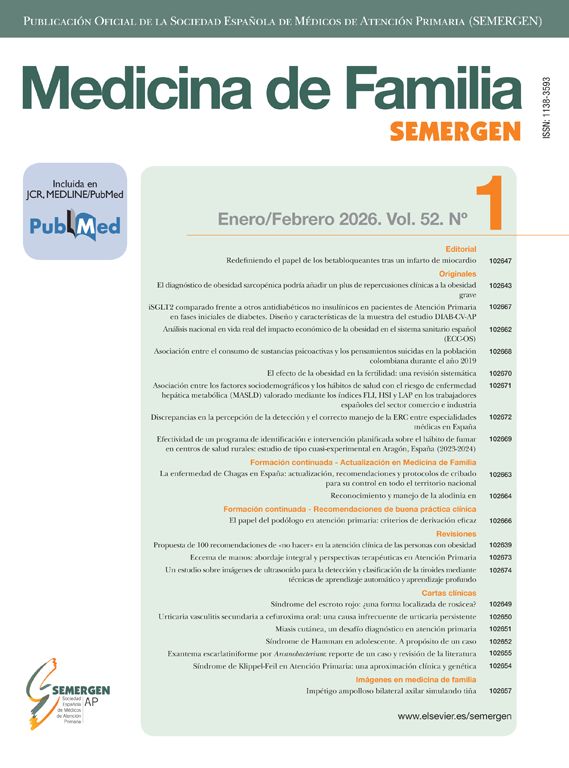Vulvovaginitis is one of the main reasons of consultation with the gynecologist, and it's association with infections, poor hygiene or hormonal alterations, is well known. Women with vulvovaginal symptoms, often have difficulties in getting an adequate diagnosis and, sometimes, they need to consult several physicians before reaching a solution. These symptoms are known to be frequent in postmenopausal women, but recent studies dealing about vulvovaginal discomfort prevalence in different age groups reported that symptomatic women (with at least one moderate-severe symptom) were younger than asymptomatic ones (49 years vs 54, p=.004), and were significantly likely to report a history of asthma or seasonal allergies.1
In 2008, it was first commented a case of a woman with asthma due to dog allergy, who also presented an anaphylactic reaction after intercourse.2 The authors identified that the sensitization to a 28kDa protein from dog, later defined as kallicrein,3 was the responsible allergen of the anaphylactic reaction. This protein is secreted in male dog's urine and it has a great structural homology with human prostatic specific antigen (PSA) found in seminal fluid. Using SDS-PAGE immunoblotting-inhibition assays it was later demonstrated that the sensitization to dog kallicrein (also called Can f 5) was responsible for the anaphylaxis reaction after intercourse, due to cross-reactivity between Can f 5 and PSA.4 Cross-reactivity means that the same IgE antibody is able to recognize different proteins from different species, and this might trigger an allergic response. In patients allergic to Can f 5, inhalation of this allergen might induce respiratory allergic symptoms (rhinitis/asthma) and contact with PSA during intercourse might prompt vulvovaginal symptoms (or even anaphylaxis).
Dogs are currently the main pet at homes and dog allergy is very frequent. They are known to be an important cause of allergic rhinitis and asthma and, as commented, they could be involved in other clinical manifestation such as vulvovaginitis. Until now, several dog allergens have been described. One of them is Can f 5, which has been reported to be involved in up to 70% of dog allergy cases. In view of the high number of patients sensitized to Can f 5 and the potential consequences in females, we recently studied the prevalence of allergic symptoms to human seminal fluid (HSF) during intercourse in women sensitized to Can f 5: 27 women with respiratory symptoms after exposure to the male dog they had at home, and with demonstrated allergy to the animal (positive skin test to dog extract) were included.5 Women were also asked about the presence of symptoms during intercourse, and in vitro determinations of specific IgE (sIgE) to Can f 5 and immunoblotting assays were also carried out. A high prevalence (18%) of allergy to HSF (presented as vulvovaginitis) among women with respiratory allergy to male dogs was found. This genital symptom and its severity seemed to be proportionally related to the levels of sIgE to Can f 5.
In view of the above- mentioned studies, we should bear in mind that in some patients with vulvovaginitis and dog allergy, discomfort during intercourse may be a consequence of dog kallikrein allergy. Although further studies with larger series of patients are needed, it seems advisable for gynecologists to ask patients with vulvovaginal symptoms during intercourse about allergy to dogs and take it into account in the differential diagnosis of vulvovaginitis.






